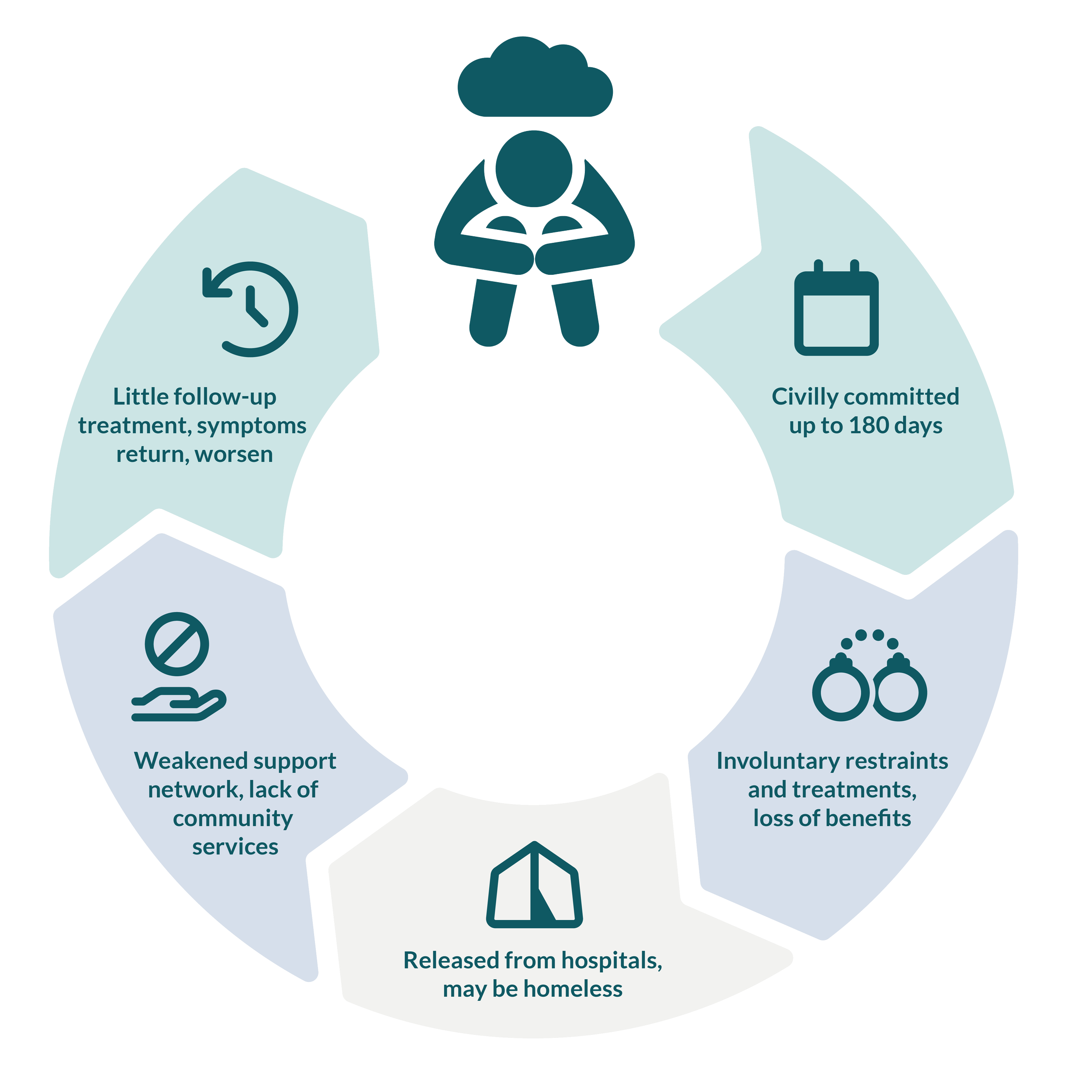Civil Commitment in Oregon FAQ
Frequently Asked Questions
What is Civil Commitment?
Civil commitment—sometimes called involuntary commitment—is a legal process in which a judge decides whether a person should be forced to accept mental health treatment in a hospital for up to 180 days—or one year in the case of intellectual/developmental disabilities—because they are a danger to themselves or others, or they are unable to meet their basic needs due to mental illness. Consequences can include forced medications, involuntary medical procedures (including surgeries), and physical and chemical restraints.
Does Civil Commitment Work?
We’ve witnessed firsthand how broken the civil commitment process is while representing over 550 people in Multnomah County just in 2023. In a few of these cases, it helped people experiencing a mental health emergency—but only when the person was experiencing a temporary crisis, and they had a dedicated support network and a place to call home after the crisis ends.
That’s not the case for most people in the system. We repeatedly see people cycling between mental health crisis, police involvement, hospitalization, and then back into homelessness. Our investigations find that too many of our clients receive too little follow-up medication after they are released from a psychiatric hospital and are not connected with long-term services. Additionally, our clients often lose their housing and access to health insurance while committed. Instead of helping people heal and recover, civil commitment ends without solving the long-term challenges that a person with mental illness faces.
Should Civil Commitment Statutes Be Expanded?
No. Oregon’s civil commitment statutes should not be applied to even more members of our community. The process is broken, discriminatory, traumatic, and rarely successful. Nevertheless, legislators are currently discussing adding more conditions to the statutes. Here is why Disability Rights Oregon is fighting:
Traumatic Brain Injury, Dementia, and Autism: Treating these conditions as mental health disorders is offensive and undermines the transformation that occurred nearly 50 years ago when people with disabilities fought together for the fundamental right to live and thrive in society instead of being locked away in an institution. We will not go backwards.
Substance Abuse Disorder: Little research currently exists about how civil commitment impacts people with substance abuse disorder, while many clinical studies show that forced drug treatment does not work. Additionally, drug addiction is a societal issue—it cannot be fixed by focusing on treating individuals without systemic change and robust community resources. There are answers to helping people on the street who are addicted to drugs, but they begin with low- or no-barrier housing and community treatment options, not with expanding civil commitment statutes.
Where Can I Learn More about Civil Commitment?
We published “Mental Health Holds and Civil Commitment” in 2022 to provide general information about the rights of people with disabilities involved in the civil commitment process. The information is provided as a public service and is not legal advice. Your civil commitment attorney is the best resource for your questions and concerns, so please contact them to discuss your civil commitment.

